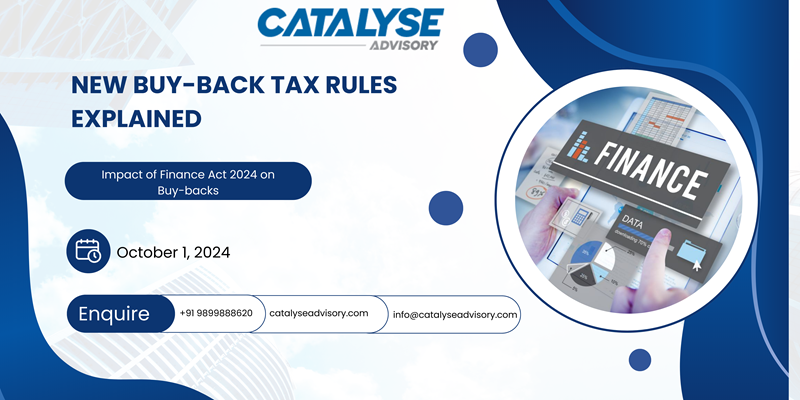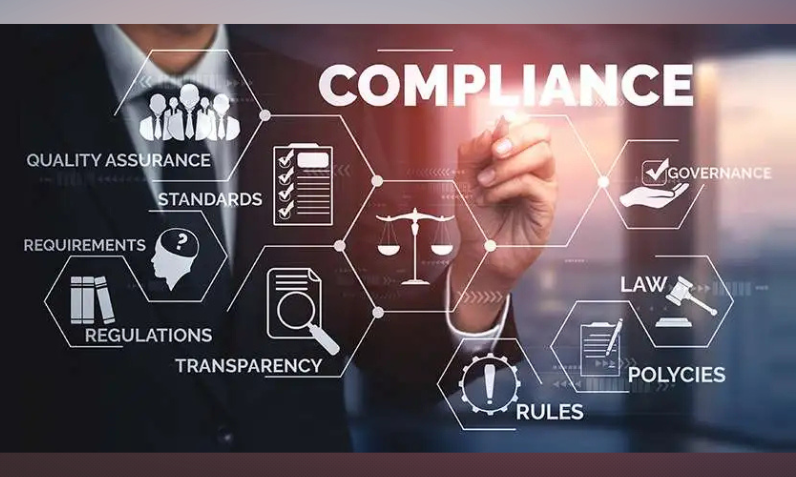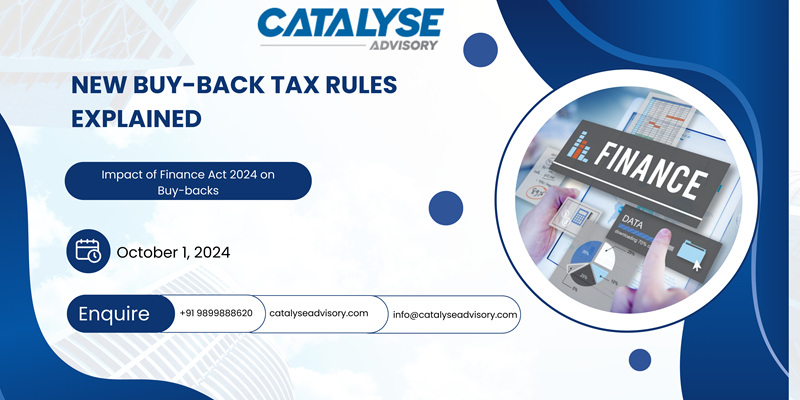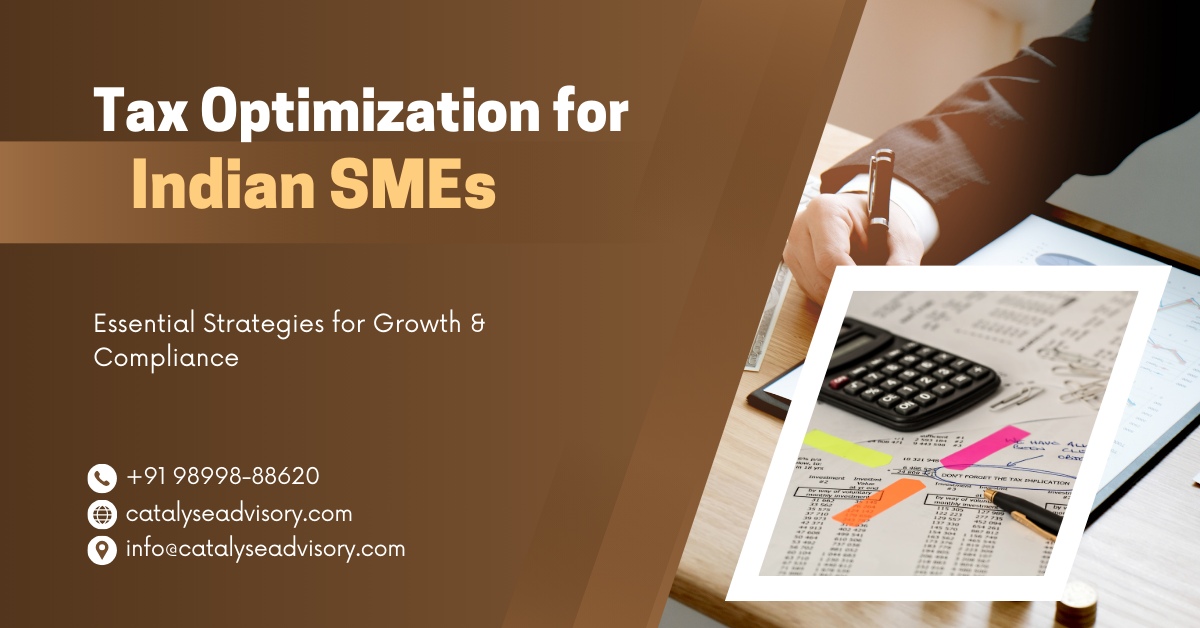Section 115QA: Understanding the Amendments Under Finance Act (No. 2), 2024

The Finance Act (No. 2), 2024, introduced significant changes in companies’ tax treatment of buy-backs of shares. These changes, particularly the exclusion of Section 115QA, mark a major shift for taxpayers and companies engaging in such corporate actions. This article will delve into the details of the amendments, explain the implications of removing Section 115QA, and outline how these changes impact shareholders and taxpayers.
1. Overview of Buy-back of Shares
A buy-back refers to a company’s acquisition of its shares from existing shareholders. This corporate action provides an exit mechanism for shareholders and is often used by companies to return surplus funds to investors. In India, the tax treatment of buy-back was historically governed by Section 115QA of the Income-tax Act, 1961.
Under the earlier regime, the company conducting a buy-back was liable to pay a Buy-back Distribution Tax (BBT) at an effective rate of 23.30% on the distributed income, i.e., the difference between the consideration paid for buying back shares and the amount received during the original issuance of the shares. Shareholders were exempt from paying tax on the buy-back proceeds under Section 10(34A) of the Act.
However, with the recent changes, this taxation approach has been revamped.
2. Amendments to Section 115QA: What Changed?
The Finance Act (No. 2), 2024, eliminates the applicability of Section 115QA to buy-backs undertaken on or after October 1, 2024. Here’s how this impacts the taxation of buy-backs:
- Buy-back Income as Dividends: After the removal of Section 115QA, the consideration received from a buy-back will now be classified as a dividend under Section 2(22)(f) of the Income-tax Act. Consequently, it will be taxed by the shareholders as income from other sources.
- No Buy-back Distribution Tax (BBT): The tax previously paid by the company on the distributed income during buy-backs (under Section 115QA) is no longer applicable. Instead, shareholders now bear the tax liability.
- Tax Deduction at Source (TDS): Companies engaging in buy-backs must deduct tax at source (TDS) at a rate of 10% for resident shareholders. For non-resident shareholders, TDS will be deducted as per applicable tax rates or tax treaties.
- Capital Loss: A critical aspect of this amendment is that the buy-back consideration will be deemed as NIL for capital gains computation, resulting in a capital loss for shareholders. This capital loss can be carried forward for eight years and offset against future capital gains.
- No Deduction for Expenses: Shareholders will not be allowed to deduct any expenses incurred against the buy-back consideration.
3. Implications for Shareholders
Taxation of Buy-back Proceeds
The most significant change is that shareholders will now be taxed directly on the buy-back proceeds. Previously, under Section 115QA, the company would pay the tax, and shareholders would enjoy a tax exemption. With the amendment, buy-back proceeds are treated as dividends and taxed by shareholders as income from other sources.
For resident shareholders, the company will deduct TDS at 10%, and the tax liability will depend on the individual’s tax slab. For non-resident shareholders, tax treaties and the respective jurisdiction’s rates will determine the tax treatment, adding complexity to the overall tax planning.
Capital Loss and Set-off
The treatment of the buy-back consideration as NIL for capital gains purposes means shareholders incur a capital loss. This loss, equivalent to the cost of the acquisition of the shares, can be carried forward for eight years. However, shareholders need to be cautious about capital gains planning, as this loss can only be set off against capital gains in the future.
4. Interplay with the Companies Act, 2013
The changes to Section 115QA do not only affect tax regulations but also interact with provisions of the Companies Act, 2013, specifically Section 68, which governs buy-backs. The Companies Act stipulates that buy-backs must be financed from free reserves, securities premiums, or the proceeds from the issuance of shares.
The Finance Act 2024 amendments, particularly the classification of buy-back consideration as dividends, expand the tax implications to include all types of buy-backs, regardless of whether a company has accumulated profits.
5. Impact on Non-resident Shareholders
The tax treatment of non-resident shareholders differs from that of residents. Depending on the applicable tax treaty, buy-back income might be classified as dividends or capital gains, which have different tax treatments:
- Dividends: If dividends under the tax treaty, the buy-back income might attract a withholding tax at a lower rate specified in the treaty.
- Capital Gains: If treated as capital gains, the tax treaty may offer relief or exemptions depending on the provisions related to capital gains.
- Business Profits or Other Income: In some cases, buy-back proceeds could be treated as business profits (if shares are held as stock-in-trade) or other income, further complicating the tax treatment.
A thorough analysis of the relevant tax treaties between India and the country of residence of the shareholder is necessary to understand the exact tax liability.
6. Future Considerations for Companies and Investors
The elimination of Section 115QA fundamentally changes how companies and investors approach buy-backs. Here are key considerations for the future:
- Repatriation of Surplus Funds: Companies seeking to repatriate surplus funds through buy-backs may need to reassess the tax efficiency of this strategy, especially for shareholders in higher tax brackets.
- Capital Structure Optimization: Investors may need to explore alternative methods of return on investment, such as dividends or capital reduction schemes, which could offer more favorable tax treatment depending on the context.
- Restructuring Transactions: The changes could also affect restructuring transactions, such as the reduction of capital or redemption of preference shares. These transactions may now be viewed through the lens of the revised tax regime, and careful planning will be needed.
Conclusion
The removal of Section 115QA under the Finance Act (No. 2), 2024, has redefined the tax implications of share buy-backs in India. While it eliminates the company’s obligation to pay a buy-back distribution tax, it shifts the tax burden to the shareholders. For taxpayers, this means understanding the implications of buy-back income being classified as dividends, dealing with potential capital losses, and navigating complex TDS and tax treaty provisions.
Companies and shareholders will need to adjust their strategies, keeping these amendments in mind, to optimize tax outcomes and ensure compliance with the new regulations. The future of buy-back taxation in India will now revolve around careful planning, particularly for non-resident shareholders and entities engaging in cross-border transactions.







